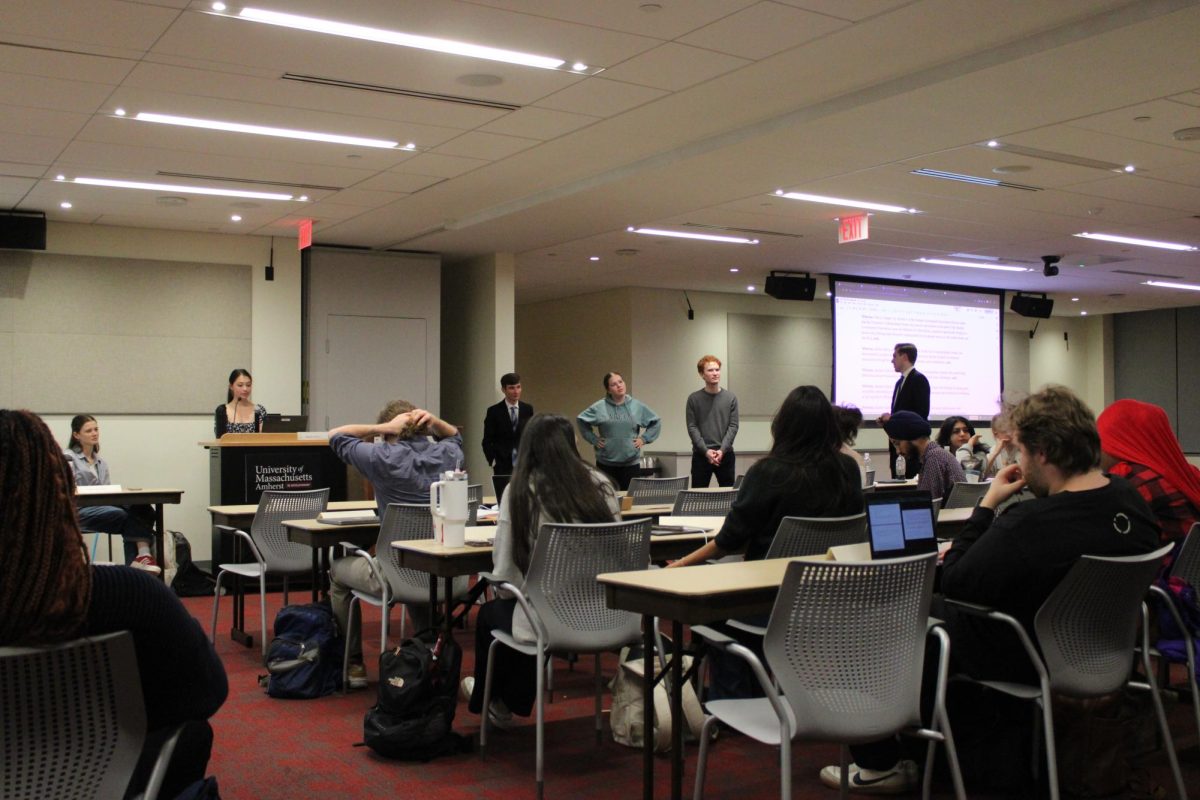They say that in America, “there’s a sucker born every minute.” Not to say that Americans are idiots, but at one time or another, everyone falls for something.
But, in this country, fooling people has become a major industry and a sizable force to be reckoned with.
From the red label on a Coca-Cola can, to the beautiful faces and sleek cars of Hollywood, more cognitive trickery has been hammered out than any totalitarian government in the modern world. But as late as the past decade, the psychoparasitical snare of the mainstream media has been looking to sell something else to the masses – thought and reasoning.
No, it’s not a conspiracy, nor is it a corporate media Bush fetish. Simply put, there’s money to be made. When it comes to war, more money is made for covering it than by debating it. So solely out of financial interest, the public has to be convinced that war is necessary.
But there are some problems: Inspectors came up empty-handed and the White House gave a marvelous presentation to the UN, using “sexed up” intelligence, magazine clippings, and even forgeries. So how can we still get people to agree that we need to go to war?
This is where the media works its magic, using specific tactics to sway public opinion in favor of the war. They are known as Manicheanism and Schadenfreude, and they aren’t new by any means.
Manicheanism is a millennia-old ideology with roots in Christianity. It simply dichotomizes an individual’s worldview into two distinct camps of Good and Evil. In fact, the existence of a Satan to counterbalance God is attributed to manicheanism. Although it has evolved throughout the centuries, it’s outcome is always the same: “either you’re with us or your with the terrorists,” “America: Love it or leave it,” or how “Christ and Allah” compares to “light and darkness” (as preached by Franklin Graham).
Many media outlets use manicheanism to simplify information, being that if news is too complex, readers will tune out from boredom or discouragement. The average attention span is about 20 minutes, so to keep your attention, information must be brief and broken-down, while another tactic, schadenfreude, comes into play.
Schadenfreude is loose German for “harming joy.” It’s used to describe pleasure that someone gets out of the discomfort of others. Ever notice that people are just waiting for Simon to blurt out his trademark insults to warped, wannabe pop stars on American Idol? Ever wonder why you love watching that trashy ex-boyfriend on Jerry Springer get slammed by Steve the bodyguard? Whenever you watch shows like American Idol or Jerry Springer, you are experiencing schadenfreude.
Schadenfreude is practically hypnotic. By exposing a person to it, they can become more open to suggestion, which is actually just another form of peer-pressure.
There are two shows that make good examples of this tactic in swaying opinion: The Sean Hannity Show (radio) and the O’Reilly Factor.
During Hannity’s show, while slamming a carefully screened “liberal,” he tells his live Dallas audience, that the US had supported Saddam Hussein’s regime so America could “fight totalitarianism.” After making this point, he ended the call by telling the caller to “get it through [his] thick, liberal skull!”
Hannity’s ad-hominem attack on a faceless dissident added cheap validity to the entire exchange. While the audience cheered over his verbal assault, they inadvertently agreed to an obvious doublethought: “We supported Saddam Hussein in order to fight totalitarianism.” (George Orwell spins in his grave.)
Schadenfreude worked its magic, as the sheer pleasure of bashing a fellow human took precedent over the hard facts, conveniently covering Hannity’s backward logic.
And then, there is Bill O’Reilly. In another dead-in-the-water “No-spin” segment, he tells Jeremy Glick, a Stanford professor whose father died in the 9/11 attacks, that he shames his family with his anti-war view.
When Glick tries to explain his side of the story, O’Reilly yells, “Shut up!” repeatedly, cuts Glick’s microphone and then goes to a commercial. During the commerical break, he loudly threatens to “tear [Glick] to f*cking pieces!”
The next day, O’Reilly tells his audience, “Glick was out of control and spewing hatred for this program and his country using vile propaganda. This is a no-spin zone, and wild ravings will be shut down quick.”
Did his audience acknowledge that it was, in fact, O’Reilly who was “out of control and spewing hatred?” Did his audience also realize that during the entire segment, O’Reilly had not made a single substantial argument? In fact, whenever Glick began citing historical fact, O’Reilly started in about how he was shaming his mother.
O’Reilly knew that his audience would be more fascinated with slamming Glick, rather than debating him, which is why he resorted to emotional appeals and insults. He was absolutely right: they ate it up.
And like Hannity, O’Reilly came through for Fox. When President Bush said, “Let’s go,” Fox got their long-anticipated, green-backed spoils of covering a war, which all of America watched. Checks were cashed, jokes were told, flags were waved, and while Rupert Murdock ate caviar, our troops ate shrapnel.
When will the media step up and take responsibility in working toward objectivity, rather than manufactured consent? And when will news and commentary be more like a source of information and less like a source of family-grade pornography? When there’s no more money to be made in the ‘Thought Market’ … that’s when.
Mark Ostroff is a Collegian Columnist.






